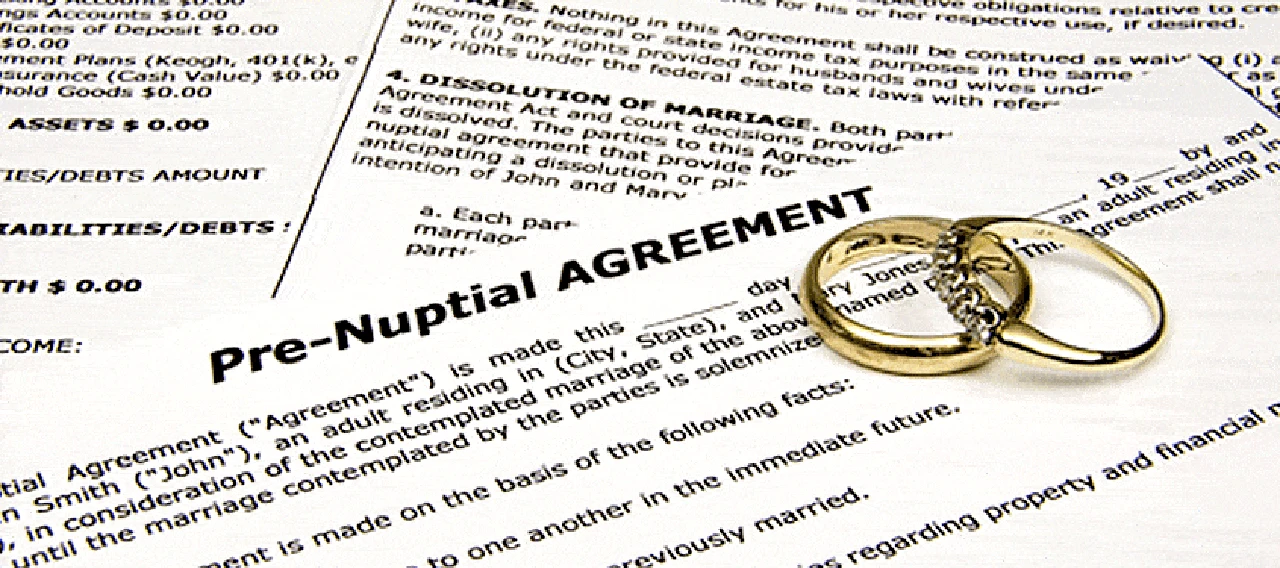Prenup? That’s Good News!

Your wedding day is only a few months off and your fiancé nervously mentions that he would like a prenuptial agreement. You are taken off guard.
“But don’t you trust me?” you cry.
“It’s not that,” he stammers. “It’s just that, that I will be disowned if I don’t…”
Or, “It’s just that I have worked so hard on creating my own business, and I want things to be clear with my business partners…”
Or, “It’s just that I have to protect my kids from my first marriage…”
You don’t get the whole idea of prenups, and neither does your lawyer friend who always has the best free legal advice. How could it be possible to plan for “’Til death do us part,” and “If we divorce…” at the same time? Aren’t they mutually exclusive?
Some of your friends tell you to “stick to your guns” and refuse to agree to any prenup he suggests. Others encourage you to be a tough negotiator and tell you stories of friends and friends of friends who “made off like a bandit” because of the hardline they took during prenup negotiations.
You just want to plan your wedding day. And you’re left so confused that you can’t even organize the questions swirling around your head.
What Should You Know about Prenuptial Agreements?
Our family lives — and our financial lives — are more complicated than ever in this day and age, and prenuptial agreements can help us plan our futures in a helpful way.
- Prenups clarify expectations. One of the most important parts of the prenup is defining which property (read: money) will be separate and which will be marital, and how marital property will be divided in case of divorce. It may also define what each spouse will inherit if one partner dies. There might be provisions for how the couple will organize their finances during the marriage. All of these things help to clarify your expectations during the marriage when things are going well, as well as provide a backup in case things go south.
- There are benefits to going through the process of coming to an agreement. Going through the process forces partners to face their fears and to discuss finances with each other. This is an opportunity for each person to explore his or her own and learn about the other person’s attitudes toward money — for instance, how protective or generous they might be, whether they are relaxed or stressed out about financial decisions, whether they prioritize gadgets or travel, whether they are frugal or profligate. It is a way of making decisions while both sides are in good communication. While we assume that people are coming into a marriage as equal partners, there is often a wealth disparity between them — and prenuptial agreements can help to clarify whether or how those disparities may be addressed.
- The way that couples make the decisions that go into their agreement affects their experience of it, and may greatly affect the outcome! I recommend using mediation or the collaborative process, because both processes offer ways for the couple to speak directly to each other and problem-solve together. In mediation, the couple sits with a third-party neutral who guides the conversation and helps them make decisions. In the collaborative process, each party has their own attorney who is also a trained mediator — and the four people go through the discussions together.
- You’re not in it alone. No matter which process a couple uses, it is imperative for both people to have lawyers review the agreement before it is signed. There is no point in doing a prenup if it won’t be enforceable later on, and the lawyers help to ensure that it will be. The lawyer’s job is to make sure that their client understands:
-
- What the law is in their state;
- What could happen in court if the prenup was not in place;
- What rights he or she might have, both in case of divorce or death; and
- What he or she is giving up.
- The prenup might benefit you, too! The person asking for the prenup can still be very much looking out for the interests of his/her partner. They may want to protect the partner from certain debts, or use the agreement as a way to ensure that you will be well cared for.
